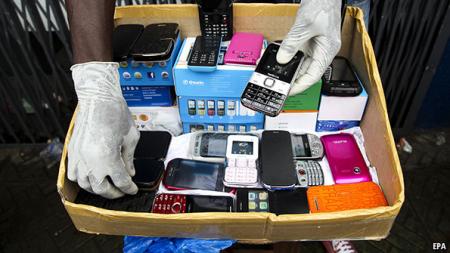THE ECONOMIST Nov.9, 2014
The number of new cases of Ebola in west Africa is decreasing, suggesting that quickly-enacted emergency precautions have so far been successful. Yet there is a valuable tool that epidemiologists would like to use to track the disease and help stamp it out: data from mobile phones.

These "call data records" identify where the device is and has been, along with its proximity to other devices, among other things. It lets experts infer, with empirical data and in real-time, where people are, and how many, and where they are probably headed. Yet despite talks among researchers, phone companies, governments—and even UN agencies and the GSMA, the mobile-industry’s trade association—the records have not yet been released. Why not?
It is not for a lack of utility. A bevvy of cases already underscore the data’s usefulness.....
If the data are so helpful, why are they not used? Several factors are to blame....
Recent Comments